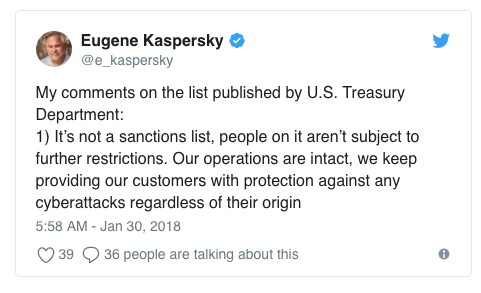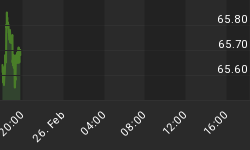Even before the latest round of sanctions against Russia and the specific targeting of metals giant Rusal last week, a key due diligence question American companies were asking their advisors was this: Is there anyone we’re connected with, even thrice removed, that could be violating sanctions?
Now that question is somewhat broader and more difficult to answer: Will there be more sanctions that target investments in Russia tied to oligarchs, and what will those targets be?
In other words, if you’re investing in Russia right now, it’s time to do some serious political elite profiling of the businessmen behind your investments. And if they’re Russian oligarchs, it might be time to clean house.
If the situation does not seem dire, from this perspective, then consider that while Russia adapted fairly well to the 2014 sanctions, but this time around, sanctions are tougher, and they’ve sent the stock market crashing, along with the ruble, causing business elite to lose tens of billions of dollars.
One of the key targets was Rusal, controlled by oligarch Oleg Deripaska.
Some are already taking stock of the level of oligarch-risk in their portfolios. Speaking to Reuters Tuesday, Allianz Global Investors’ Greg Saichin noted that there are fears that “Rusal-style” sanctions could extend to other companies.
“We know of a number of individuals who are either owners of companies or have stakes in companies, who may be next in line … There is oligarch risk so we have moved to reduce the Kremlin element in the portfolio,” he told Reuters. Related: Nearly One-Third Of U.S. Lottery Winners Declare Bankruptcy
Due diligence efforts should start with the January list of Russian “oligarchs” published by the U.S. Department of Treasury—a list that Forbes claims was snatched directly from the Russians on its 2017 Billionaires list. Regardless, the next names attached to sanctions will be on this list—fair or not.
And since the Treasury Department is operating with only a loose understanding of what an oligarch is, the list contains plenty of names of innovative, wealthy Russians who should not be considered part and parcel of the Kremlin, such as Eugene Kaspersky, founder of antivirus firm Kaspersky Labs.
When the list came out in January, Kaspersky was one of the first to respond, attempting to get in front of the skewed notion that this was a sanctions list and investors might start pulling out.

(Click to enlarge)
But that was three months ago, and things are now much more intense. As investors consider whether they need to weed Russian elements from their portfolios, it’s quite possible that the net of losses will be cast far beyond influential oligarchs.
And while the Russian market crash has made for some great bargain opportunities right now, no one’s biting. Investors are too gun shy and have no idea where this is all going.
So far, those who have taken the biggest hit include specifically sanctioned Rusal, and other metals, mining and energy companies. Steelmaker Severstal, owned by Alexei Mordashov, and Polyus Gold, controlled by sanctioned Suleiman Kerimov have also taken big hits, along with Norilsk Nickel, Metalloinvest and TMK.
Related: Will Blockchain Stocks Ever Bounce Back?
No investors wants to be in the path of the backdraft of sanctions that are making business impossible for Rusal.
According to Goldman Sachs, as reported by Bloomberg, Rusal will have difficulty sustaining output because it’s not just about finding buyers for its aluminium: It’s about trying to source alumina and bauxite supplies, much of which comes from third parties and operations outside of Russia.
“In a scenario where Rusal’s Russian operations are cut off entirely from foreign supplies, its domestic alumina production would be enough to sustain only 1.5 million tons of its 3.7 million ton aluminum production,” Bloomberg quoted Goldman as saying. “Annual aluminum production losses would thus amount to 2.2 million tons.”
Metals, and commodities in general, are already on the investor hitlist when it comes to Russia, and the specter of new sanctions alone could broaden investor fear and turn every Russian businessman into an ‘oligarch’.
By Charles Benavidez for Safehaven.com
More Top Reads From Safehaven.com:

















